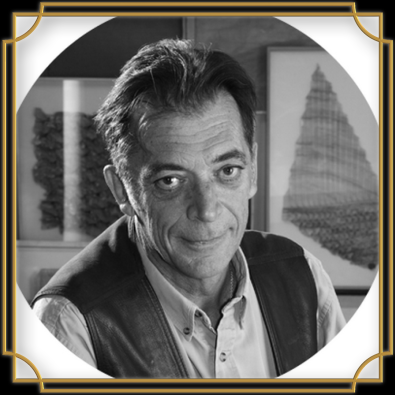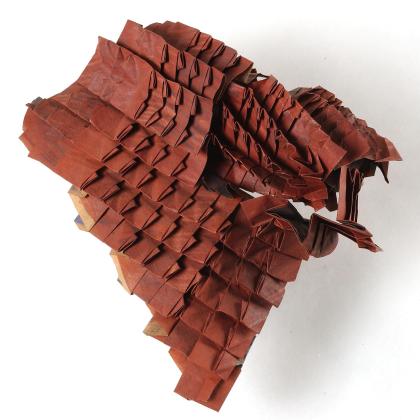
Jean-Claude Correia
French
Paris
France
Jean-Claude Correia was an influential figure in the world of paper folding and origami. Born on November 29, 1945, in Casablanca, Morocco, he developed an early interest in arts and pursued formal education at the École Nationale Supérieure des Arts Décoratifs in Paris, from where he graduated in 1972.
Correia became fascinated with the art of paper folding in the early 1970's. He preferred to refer to his work as "pliage," emphasizing a broader and more abstract approach to paper folding that went beyond the traditional scope of origami.
In 1978, Correia co-founded the Mouvement Français des Plieurs de Papier (MFPP) with his friend Gilles Gautherin. The MFPP aimed to promote paper folding as an art form and held numerous festivals and exhibitions to showcase the versatility and beauty of folded paper. Under his leadership, the MFPP organized significant events such as the first international paper folding festival in Mirepoix-sur-Tarn in 1982 and a subsequent festival in Grenoble in 1983.
Correia’s work is characterized by its innovative use of large sheets of paper, which he often manipulated into intricate and textured surfaces. His pieces drew inspiration from natural forms such as tree bark, ocean waves, and volcanic lava. These works were often marked by a contrast between precise geometric folds and more chaotic, freeform elements. Correia’s approach to paper folding was not just about creating shapes but about expressing deeper artistic and philosophical ideas. He viewed folds as a metaphor for the complexities of life and nature, reflecting on themes such as continuity, transformation, and the interplay between structure and chaos.
Throughout his career, Correia participated in numerous exhibitions across Europe and Asia, and his works are held in private collections around the world, including in Paris, Frankfurt, Boston, New York, and São Paulo. Some of his notable exhibitions include "Origami Masterworks" in San Diego in 2003, "Masters of Origami" in Salzburg in 2005, and the Holland Paper Biennial in 2006.
In addition to his contributions to the art of paper folding, Correia was also involved in other artistic endeavors such as painting and woodcarving. Later in his life, he moved to rural Blancafort in central France, where he continued his artistic pursuits until his death on February 14, 2016.
Correia's legacy in the origami community is significant, as he helped elevate the perception of paper folding from a craft to a respected art form. His innovative techniques and philosophical approach to art have left a lasting impact on the field, inspiring future generations of paper artists.
